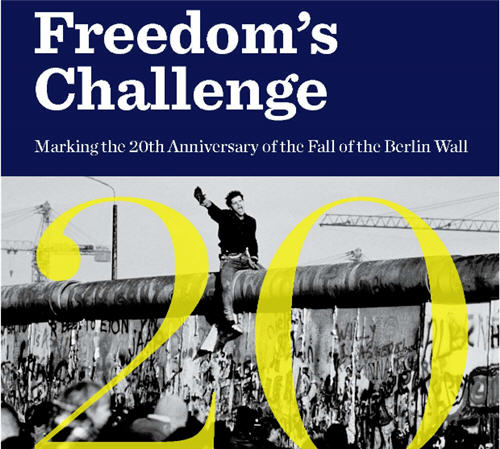
We are only now coming to terms with what it will take to lead in the world that has evolved in the 20 years since the Berlin Wall’s fall, instructed by the hard lessons of Iraq and Afghanistan.
When I came to the Senate in 1997, the post-Cold War world was being redefined by forces no single country controlled or understood. The implosion of the Soviet Union, and a historic diffusion of economic and geopolitical power, created new influences and established new global power centers – and new threats. The events of September 11, 2001 shocked America into this reality. The 9-11 Commission pointed out that the attacks were as much about failures of our intelligence and security systems as about the terrorists’ success.
The U.S. response, engaging in two wars in Iran and Afghanistan, was a 20th-century reaction to 21st-century realities. These wars have cost more than 5,100 American lives; more than 35,000 have been wounded; a trillion dollars has been spent, with billions more departing our Treasury each month. We forgot all the lessons of Vietnam and the preceding history.
No country today has the power to impose its will and values on other nations. As the new world order takes shape, America must lead by building coalitions of common interests, as we did after World War II. Then, international organizations such as the United Nations, NATO, the World Bank, the International Monetary Fund and GATT (now the World Trade Organization) – while flawed – established boundaries for human and government conduct and expectations that helped keep the world from drifting into World War III. They generally made life better for most people worldwide during the second half of the 20th century.
Our greatest threats today come from the regions left behind after World War II and the Cold War. Addressing these threats will require a foreign policy underpinned by engagement – in other words, active diplomacy but not appeasement. We need a clearly defined strategy that accounts for the interconnectedness and the shared interests of all nations. Every great threat to the United States – whether economic, terrorism, proliferation of weapons of mass destruction, health pandemics, environmental degradation, energy, or water and food shortages – also threatens our global partners and rivals.
Global collaboration does not mean retreating from our standards, values or sovereignty. Development of seamless networks of intelligence gathering and sharing, and strengthening alliances, diplomatic cooperation, trade and development can make the biggest long-term difference and have the most lasting impact on building a more stable and secure world. There really are people and organizations committed to destroying America and other free countries, and we and our allies need agile, flexible and strong militaries to face these threats. How, when and where we use force are as important as the decision to use it. Relying on the use of force as a centerpiece of our global strategy, as we have in recent years, is economically, strategically and politically unsustainable and will result in unnecessary tragedy – especially for the men and women, and their families, who serve our country.
Senator Chuck Hagel is chairman of the Atlantic Council. This essay is from Freedom’s Challenge, an Atlantic Council publication commemorating the 20th anniversary of the fall of the Berlin Wall.
Image: freedoms-challenge-cropped.jpg
